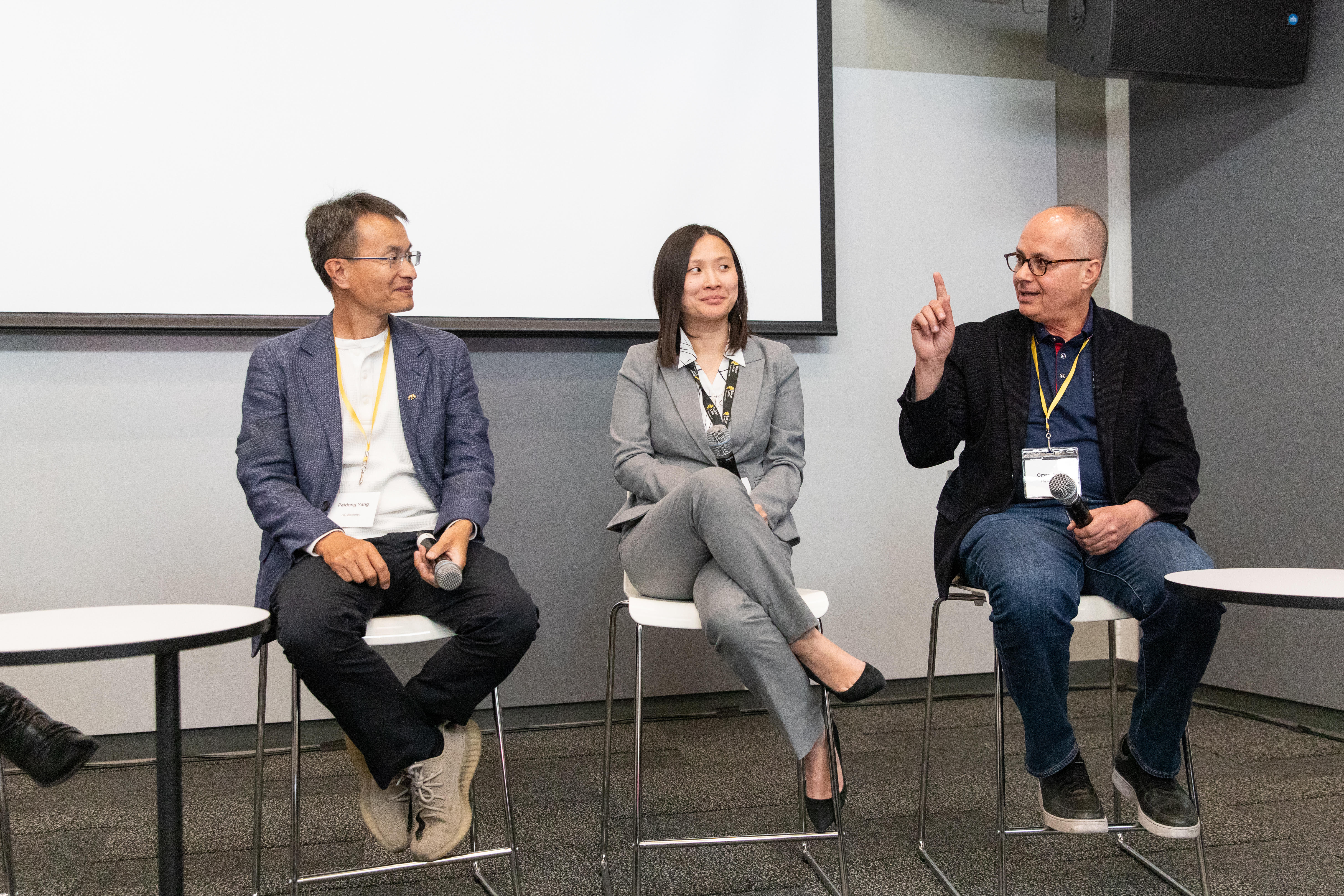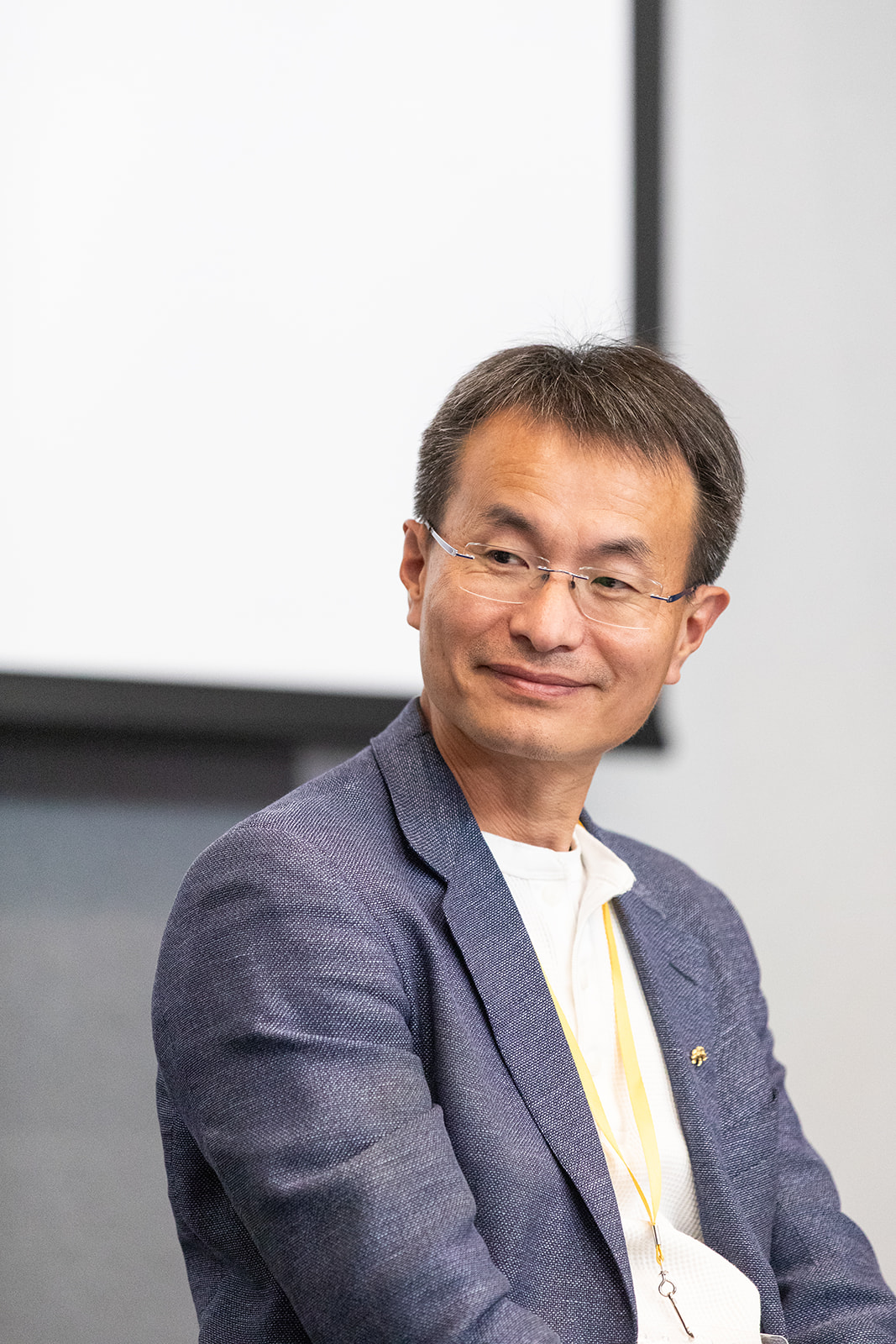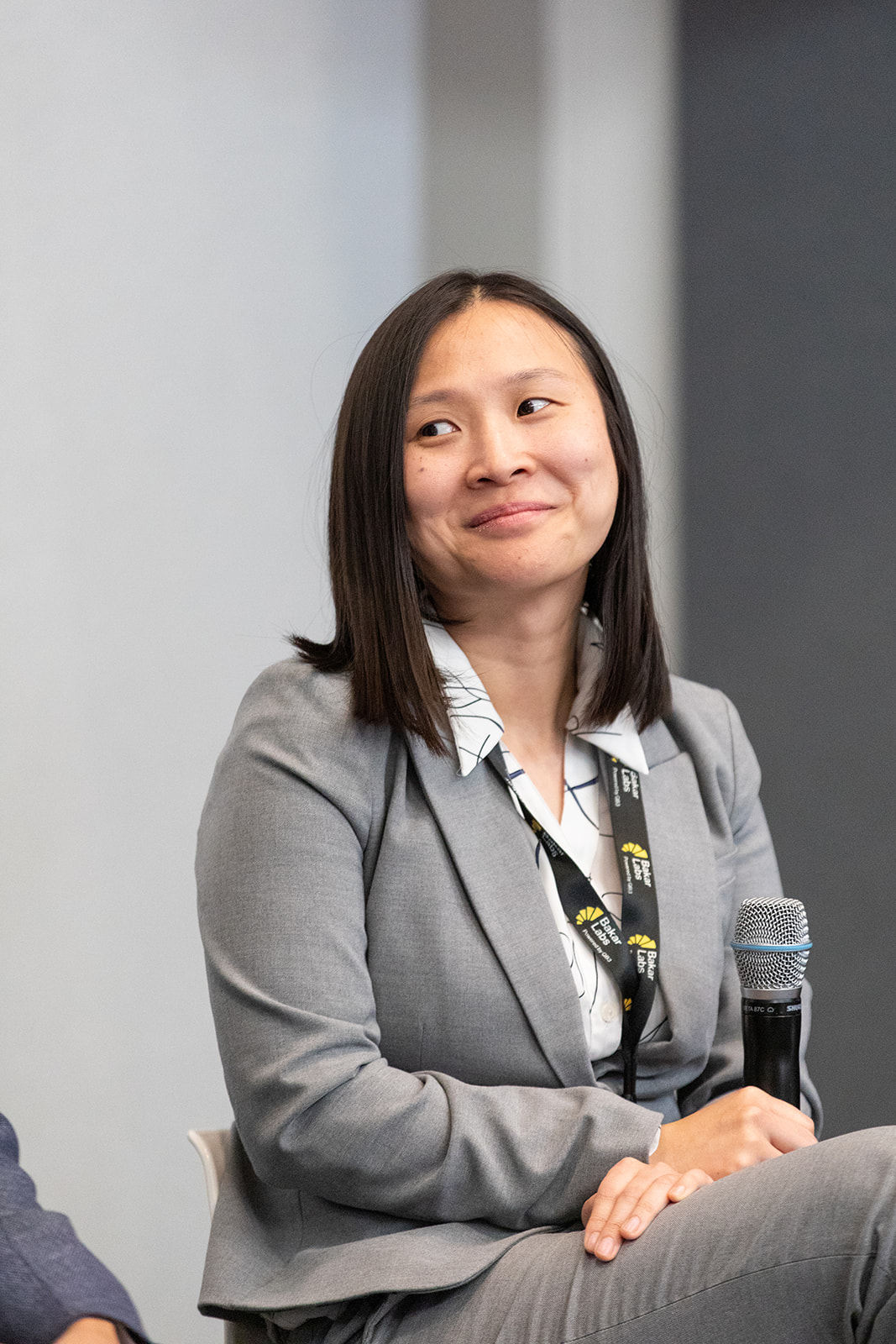A high-profile session during SF Climate Week's "AI and Climate Symposium: From Cutting-Edge Research to Commercialization" brought together leading scientists to showcase how artificial intelligence (AI) is revolutionizing carbon capture and conversion. The event explored the most recent advances in the carbon management cycle, which includes both CO₂ capture and conversion technologies, the feasibility and challenges of scaling those technologies, the need for global investment in carbon capture, and the role of human creativity in an AI-driven world. Hosted by the Bakar Institute of Digital Materials for the Planet (BIDMaP) and Bakar Climate Labs at the University of California, Berkeley, the event was moderated by Jennifer Chayes, Dean of the College of Computing, Data Science, and Society at UC Berkeley, and featured talks from three distinguished researchers: Omar Yaghi, Peidong Yang (both professors at UC Berkeley), and Shijing Sun, a professor from the University of Washington.

Omar Yaghi, a world-renowned chemist known for his pioneering work on Metal-Organic Frameworks (MOFs) and Covalent Organic Frameworks (COFs), emphasized the potential of MOFs and COFs for capturing carbon dioxide (CO₂) directly from the air. Highlighting his collaboration with BIDMaP, Yaghi explained how AI-powered generative models have dramatically accelerated the discovery and optimization of new materials for carbon capture. By integrating AI into traditional chemistry workflows, his team has been able to double the rate of new material discoveries. He presented his latest work on the most efficient CO₂ capture material to date, capable of capturing CO₂ directly from the atmosphere at industrial scales.
"We can now discover and optimize materials faster than ever before," Yaghi told the audience, explaining how his team's collaboration with BIDMaP uses AI to rapidly design, test, and refine new compounds. Yaghi emphasized the concept of the "air economy," in which essential resources such as water and carbon can be extracted from the atmosphere. He demonstrated that the COFs developed in his lab could capture CO₂ at gigaton scales using scalable production methods. Despite the scientific breakthrough, he noted that widespread adoption would require significant societal commitment.
Peidong Yang presented a vision for a "CO₂ Refinery" – a sustainable chemical industry powered by carbon captured from the atmosphere. Yang discussed how his research aims to transform captured CO₂ into high-value chemicals, fuels, and even sustainable plastics. He detailed his lab's progress on artificial photosynthesis systems and CO₂ electrolyzers that turn CO₂ and water into chemical products using renewable energy.

Yang emphasized the transformative potential of AI in accelerating catalyst discovery, a critical challenge in carbon conversion. Through BIDMaP's iCAT (intelligent Catalyst) initiative, his team is leveraging machine learning to identify new, highly efficient catalysts. "With AI, we can explore an immense chemical space and pinpoint the most promising candidates faster than ever before," Yang explained. This approach significantly reduces the energy required for CO₂ conversion, bringing industrial-scale sustainability closer to reality.
Shijing Sun concluded the session with a forward-looking discussion on autonomous laboratories. Sun's work focuses on building self-driving labs that combine robotics, automation, and AI to dramatically accelerate the discovery and optimization of new materials. She demonstrated how her team has automated the synthesis and characterization of MOFs for carbon capture, achieving 35 times faster analysis than traditional methods.

"Autonomous labs can democratize research," Sun argued, describing how her AI-guided systems allow even non-experts to explore complex materials. She showcased examples of her team's AI-guided synthesis robots rapidly optimizing chemical processes in real-time. In a particularly striking example, Sun's system successfully optimized a chemical synthesis process within six experimental rounds, a task that would typically take months.
The session offered a glimpse into a future where AI and materials science converge to tackle some of the world's most pressing environmental challenges. AI is not just a tool but a transformative force in materials science. With climate change accelerating, the researchers argued, harnessing AI for carbon capture and conversion is not just an option — it's an imperative.
By integrating AI into the discovery, optimization, and deployment of new materials, the potential impact of these innovations on the planet could be exponentially accelerated.
"If we decide this is a crisis worth investing in, we can solve it," Yaghi emphasized.
To keep up with our news and events, subscribe to the BIDMaP newsletter.

